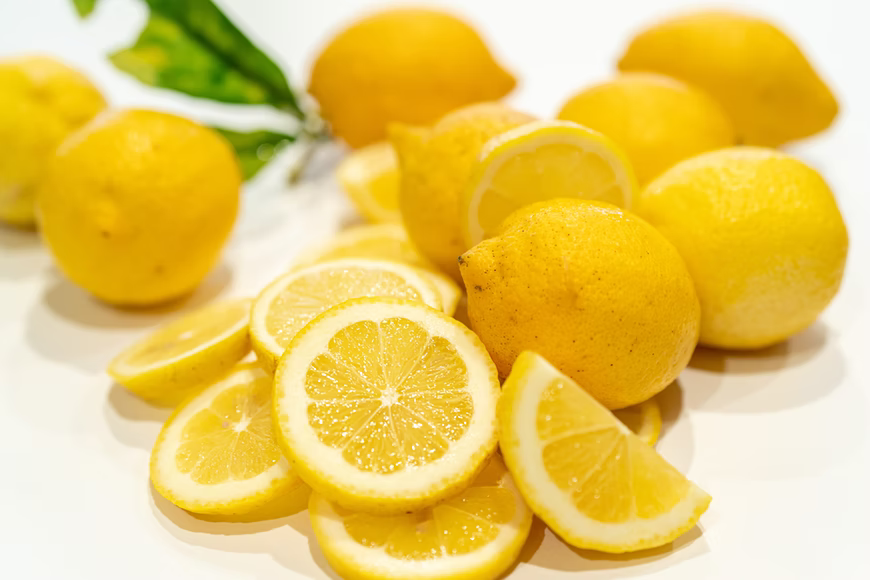Limonene is a chemical found in the peels of citrus fruits and other plants. It has been used as medicine for centuries, but there’s no good evidence to back up these claims. It can also be used as a safe compound for pest control.

Limonene is a versatile chemical with many uses. It can be found in foods, beverages, chewing gum, and an ingredient for pharmaceuticals such as medicinal ointments or creams to help them penetrate the skin better.
It’s also used when manufacturing cleaners, solvents, cosmetic personal hygiene items, including shower gel/shampoo, etc. Let’s look into how limonene can be used as an effective pesticide for horticulture.
One of the most common cannabinoids found in nature, limonene has been used for thousands of years as an insect deterrent and even gives off a lemon-like scent. It’s also present in many food products, soap or perfumes.
Pesticides containing limonene are used for flea and tick control on pets, as an insecticide spray in the garden or house-fly repellent tablecloths to keep away bugs at your outdoor barbeque.
This chemical also functions well against mosquitoes. It’s safe enough that humans can apply it themselves too.
Formulations include ready-to-use solutions, emulsifiable concentrates, and granular material. Limonene can be applied by hand or machine as needed for both indoor uses with limitations on the amount of time it should not exceed 24 hours before application outdoors.
d-Limonene is a chemical found in many things, including pesticides and food products. It has an odor similar to that of citrus fruits, such as lemons or oranges, which makes it perfect for use with pest controls.
D-limonene is a chemical found in many products, including food and perfume. The FDA has granted it GRAS status as an ingredient for use with fragrances or flavors when added to foods such as citrus fruit flavorings.
However, they do not currently regulate its usage on farms since there are no restrictions against using this herbicide directly onto crops themselves.
D-limonene is a safe, nonchemical alternative to traditional pesticides that can wipe out entire colonies of insects. It doesn’t just kill them either.
D-limonene prevents re-infestation by repelling new bugs from coming in and attacking your plants – meaning you don’t have to deal with pesky little critters anymore.
The citrusy scent of orange oil will keep your horticulture safe from pesky insects. The citric acid in this remedy melts the exoskeletons and destroys any eggs they’ve laid.
Read Also:
Limonene is insoluble in water, and so it is expected that the technical form will be stable. However, limonene can harm aquatic life if ingested by fish or invertebrates.
Both of which are less toxic than this substance at higher doses; however, only freshwater creatures seem prone to getting hurt from acute exposure (which amounts to too little for them to feel any ill effects).
Birds are known to eat flowers, but the risk of eating limonene-converted dirt is small. The only cases where this could happen would be if there were leftover granules on your lawn or sidewalks.
The use of limonene as a mosquito larvicide will not have any major ecological concerns for aquatic species.
The oily film produced by this product is expected to dissipate rapidly, posing no significant risk to either group from runoff into pond water resulting in minimal risks when properly used under controlled conditions with careful planning and execution at application sites.
Mammals are unlikely prospects consuming enough granules that they would be jeopardized by their ingestion.
The following is the list of what risk it reduces and what you don’t have to worry about:
Limonene, as a safe compound for pest control, maybe new to most people who are just beginning their agricultural life. Having to use this compound to mix with your pesticide not only ensures the well-being of your crops but also the safety of the environment and for humans, as well.
Find limonene-based products and have an effective pesticide today. Brewer International focuses on the effects and safety of customers and the optimal growth of produce.
Glass partitions and doors bring a gloss and style to virtually any interior, from minimalistic…
Managing residential properties is integral to real estate as it ensures that the investment is…
Explore top bathroom taps: mixer, automatic & single-lever faucets. Upgrade for style & efficiency with…
Low water pressure in the house can be more than just a minor inconvenience; it…
Crowdfunding is a busy world, and an attractive video can make all the difference between…
Find the ideal prayer mat for a deeper spiritual experience with our guide on materials,…